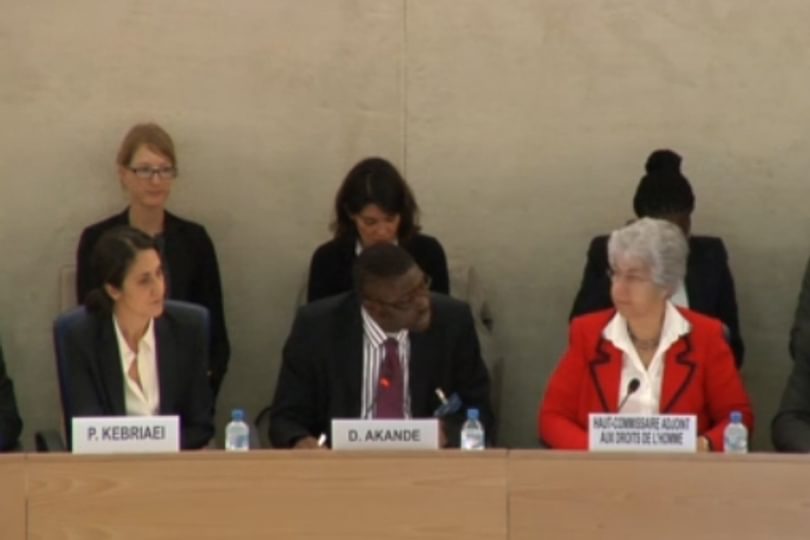
Dapo Akande, Co-Director of the Oxford Martin Programme on Human Rights for Future Generations, moderated a recent UN panel discussion on the use of armed drones in counter-terrorism and military operations.
The UN Human Rights Council panel drew together council members, experts, observer states and NGOs, and the meeting focused on questions of the intentional use of lethal force, impact on affected communities, transparency and accountability, states’ policies on armed drones, and investigations following violations of international human rights law.
The panel included Flavia Pansieri, United Nations Deputy High Commissioner for Human Rights Christoph Heyns, Special Rapporteur on extrajudicial, summary, or arbitrary executions, Ben Emmerson, Special Rapporteur on the promotion and protection of human rights and fundamental freedoms while countering terrorism, Shahzad Akbar, Legal Director of the Foundation for Fundamental Rights, and Pardiss Kebriaei, Senior Attorney at the Centre for Constitutional Rights.
In her concluding remarks, Ms Kebriaei said much more needed to be done for the commitment to transparency to become real, and that accountability was an obligation of states, and not a policy choice. Mr Heyns said the challenge posed by drones and targeted killings should be high on the council’s agenda, as it had a responsibility to be a custodian of the established principles of human rights law. The potential use of drones in domestic law enforcement should also be on the agenda, he added.
A summary of the discussion and video are available on the UN website.